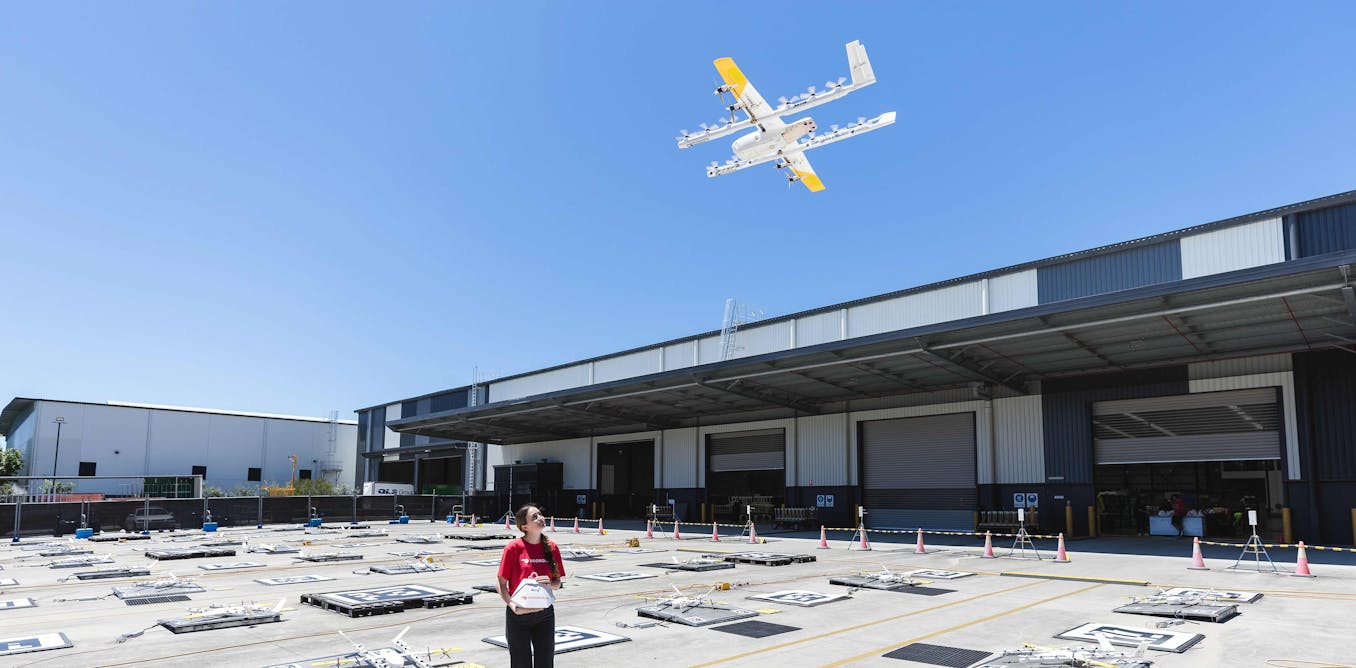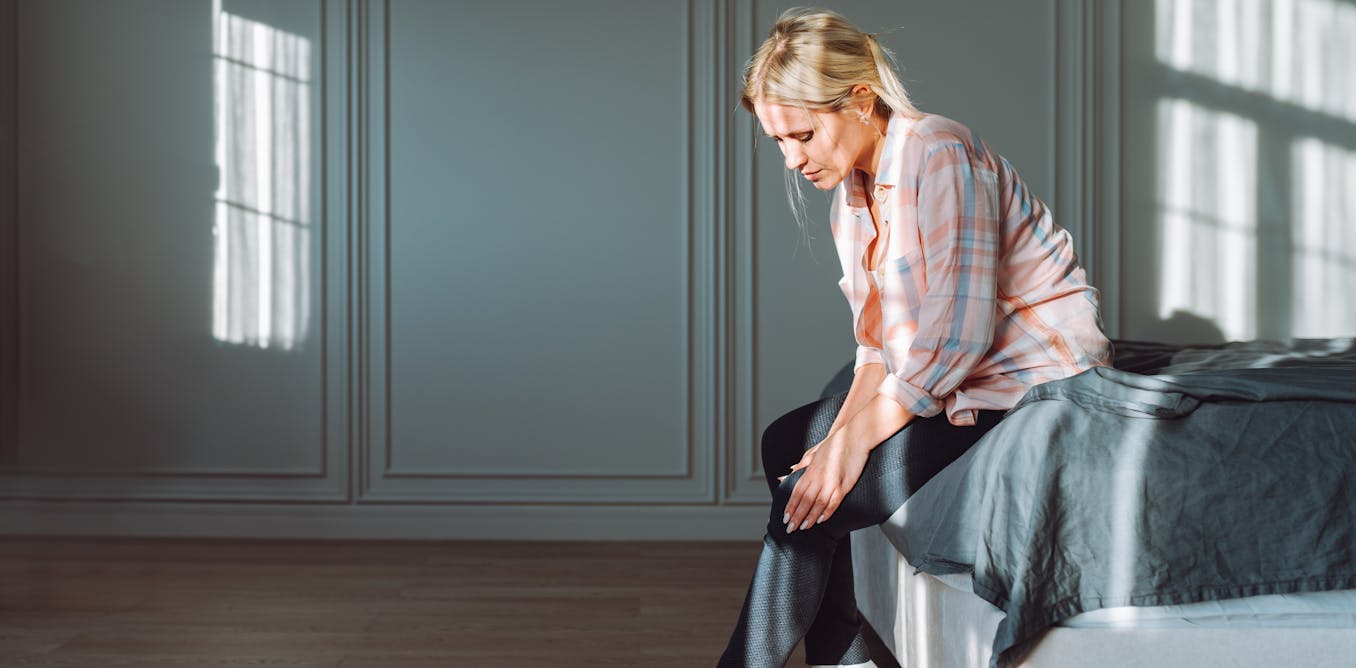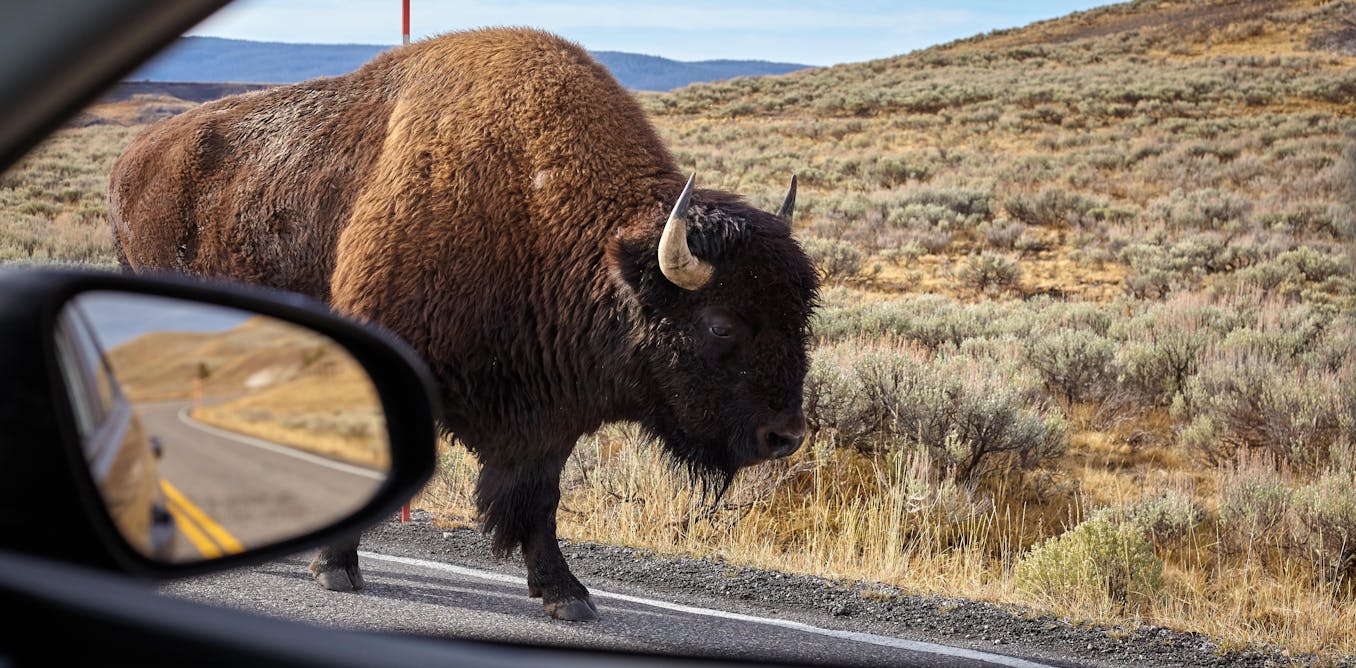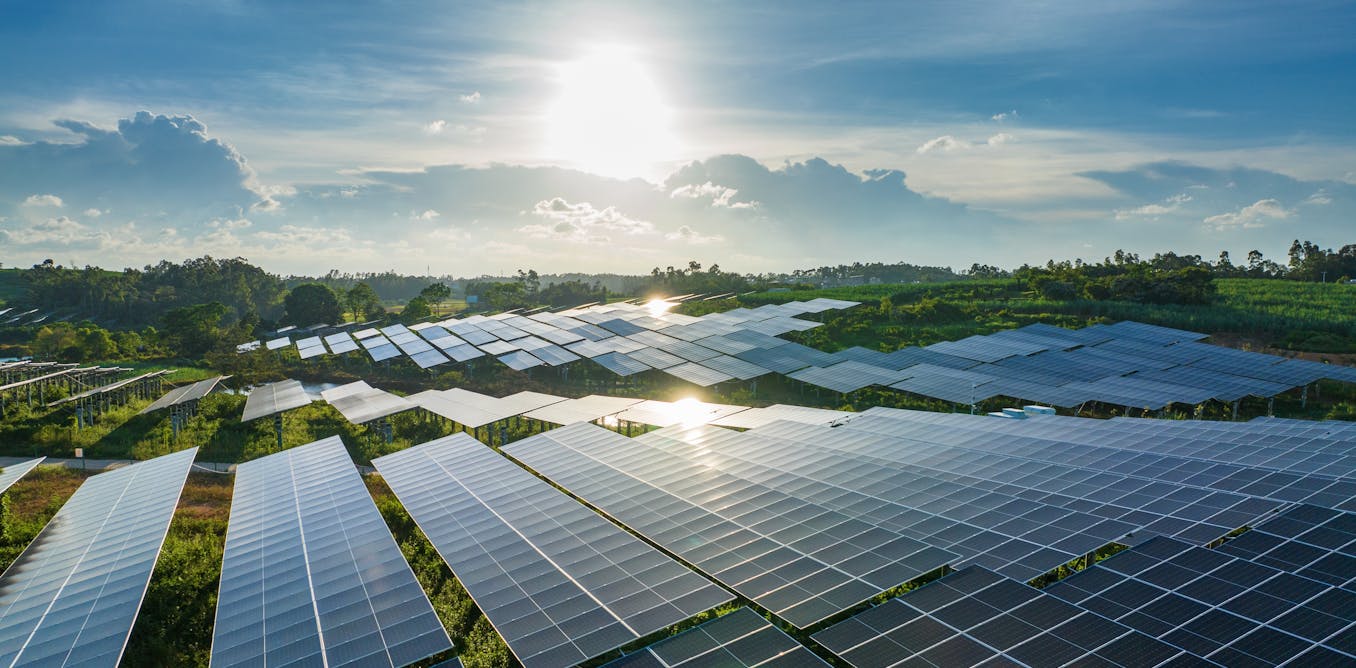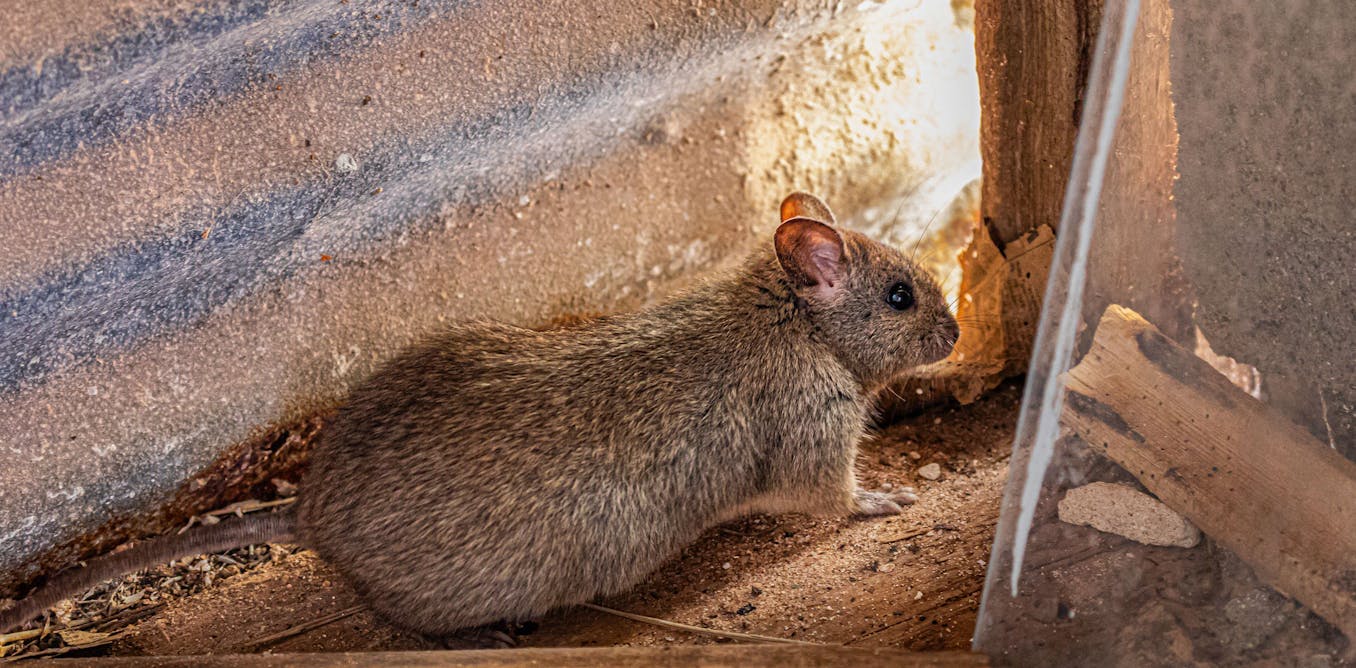For a long time, Syriac Orthodox Christians were religiously persecuted in Turkey. Now, more and more are returning to their historic homeland in the southeast of the country. Among them is a nun who wants to revitalize the village where she grew up.
Hatune Dogan, a Syriac Orthodox nun, was born in İzbırak in 1970. The 270 Christian families who still lived in the village back then later fled. That included Sister Hatune, who left her home in the 1980s with her parents and nine siblings. Southeastern Turkey was the scene of a military conflict between the Turkish army and Kurdish PKK militias – with Christians caught between the two sides.
Syriac Orthodox Christians in Turkey are believed to have been one of the earliest Christian communities. Over the centuries, the group – with its own customs and language – came under repeated attacks in a predominantly Muslim region. Most decided to flee.
Around 300,000 Syriac Orthodox Christians now live outside Turkey, primarily in Europe and the United States. Almost half of the diaspora has found a new home in Germany, like the Dogan family. Several years ago, Sister Hatune resolved to return to her home village of İzbırak to fulfill a promise to her dying father and renovate the old family home. She is determined to breathe new life into the village.
Simon Üzel was 17 years old when he and his family fled the Turkish village of Öğündük for southwest Germany in 1990. Now, he’s among those contemplating a move back home. Whenever it feels safe to do so, he travels to his old village – a place that is never truly far from mind.
#documentary #dwdocumentary
______
DW Documentary (English): https://www.youtube.com/dwdocumentary
DW Documental (Spanish): https://www.youtube.com/dwdocumental
DW Documentary وثائقية دي دبليو (Arabic): https://www.youtube.com/dwdocarabia
DW Doku (German): https://www.youtube.com/dwdoku
DW Documentary हिन्दी (Hindi): https://www.youtube.com/dwdochindi
A group of Syriac Orthodox Christians returning to their ancestral home, in southeastern Turkey. We want to revitalize the village, which has been vacant for the past two decades. The story: It was to die here or live in Europe. It’s beautiful here. We have everything.
As Christians, we don’t have the freedom one dreams of. But we’re trying to win that freedom and start living here again. This is the village of Izbirak in southeastern Turkey, not far from the border to Syria. Most of the houses here are deserted or old ruins.
Just a handful of people live here now but among them is a woman who has returned relatively recently: a Syriac Orthodox nun. Her day begins at sunrise with morning prayers. I’m Sister Hatune Dogan. I was born in this house on April 2nd, 1970. And I lived here until the age of 15.
Every day after morning prayers, Hatune Dogan goes for a walk around the village which she calls “Zaz” its original name in the Aramaic language. When she was growing up here, it was still home to 270 Christian families. Imagine here was our pond. My father and the other men would dive in here
And could hold their breath long enough to swim underwater to the other side. It was teeming with life! In the 1980s and ‘90s, this area was the scene of a military conflict between the Turkish army and Kurdish PKK militias. The Christians always in the minority here were caught between the two sides.
We’re neither Turks nor Kurds. We are Aramaic Christians. We were basically being crushed between two stones and there was no way we could stay here. We tried to persevere until the death threats. In 1985, one such threat was made to her father by Kurdish neighbors.
He decided to flee with his wife and ten children to Germany. That same week, we left for Istanbul and once we had our passports and tickets, we flew to Germany. And every single day since 1985, I dreamt of being here in the village. Germany became a second home to Hatune,
But she never forgot where she came from. And she always held tight to her Syriac Orthodox faith. When she was of age, she decided to become a nun. Over 30 years after moving to Germany, she returned to her ancestral home in 2017 fulfilling her father’s dying wish.
My father was very ill in 2014. I was a trained nurse, so I watched over him. I was with him day and night and shortly before he died, he said to me, in deep breaths: My dearest daughter: My wish is for life to return to ‘the village.’ The village he said.
After her father’s passing, she used her inheritance to start rebuilding her family home in Zaz. When I arrived, this wall had practically collapsed. It was all ruins. For me, it was important to restore the old houses. These are the original stones. I was born right here. And there was a rocker.
My mother hung a rope when there was a baby – to rock them to and fro. Hatune is a member of the Syriac Christian minority, also known as Aramaic, Assyrian, Chaldean or Suraya the Aramaic word for “Syriac.” Their ancestors are believed to have been one of the very first Christian communities.
Over the centuries, the group with its long-standing religious beliefs and own customs and language came under repeated attacks in a predominantly Muslim region. Most decided to flee their homeland. Only about 2,000 Christians still live in the area 1% of the community’s numbers a century ago. Today, there are around 300,000 Syriac Orthodox Christians
Living outside Turkey, primarily in Europe and the United States. Almost half of the diaspora has found a new home in Germany. In the town of Bietigheim-Bissingen in southwestern Germany, the Syriac Orthodox community comprises some 500 families. Simon Üzel was 17 when his family moved to Germany from eastern Turkey in 1990.
As Christians, we were looking for a new home that was Christian, so we were looking in Europe. We’d heard there was democracy, freedom, and work and above all: peace. That was here and in Europe overall. Simon learned German, and after doing an apprenticeship as a hairdresser opened his own salon and met Georgitte.
She too is Christian and had immigrated to Germany from Syria in 2000. The couple now have two sons and a daughter. Every Sunday after church service, the family gathers together for lunch. Our children were all born here, where there are other traditions. We’ve tried to find a compromise that includes our ancestors.
Our aim isn’t to assimilate it’s rather to integrate and we really make an effort on that front. I feel at home both here and in Turkey. I see it as having two homes. One is the home of my parents, and the other is the home I was born in.
For the first ten years after leaving Turkey, Simon Üzel did not dare venture back. But later, whenever it felt safe to do so, he visited the village where he was born and grew up. In some sense, he’d never truly left it behind. When you’re there, you feel grounded.
But every time you leave this homeland, you think: Man, when will I be back? And there’s always the question of why? Why leave? Why not go back for good? What does the future hold? It really does weigh on your mind. Simon is soon heading off for a vacation in his homeland.
He always stops by his parents’ place to say goodbye before setting off. They live in a neighboring apartment block. Hi mom, I’m off to our village and wanted to say goodbye to you both. Meryem and Ilyas Üzel were farmers in eastern Turkey. They ran a small village store and made rugs.
In 1990, they fled to Germany, fearing for their own safety amid the conflict between the Muslim Turks and Kurds. We’ve been in Germany for 32 years to the day. My dad has never been back home, but mom has been able to go twice.
We don’t go back to the homeland without saying goodbye first. We need their prayers for us. And when we arrive back here, we always go straight to them. Turkey does not recognize the Syriac Orthodox Christians as a religious minority, but the state does give land and churches back to those returning.
People from the diaspora are now rebuilding their old communities here near the Syrian border. They’re restoring old houses and constructing new ones. Most of the Christians, however, only spend their summer vacations in their ancestral villages. In Zaz, too, there are several new and restored homes, standing among the ruins.
The largest house in the village belongs to Sister Hatune Dogan, which she built next to her parents’ old home. She wants to provide other returnees with a roof over their heads while their homes are under construction. We already have beds made up. Here we have some bunk beds.
The rooms are finished everything is ready to go. And here’s another room that sleeps four. So ten people can stay the night here. I have 32 beds up here in total. Hatune’s plans for the house don’t end there. She also wants to set up a kind of school,
Aimed at helping women whose families stayed in the region and who never went to school. She’s already acquired 18 laptops and 12 sewing machines for the project. I want to offer computer courses and sewing lessons here, because those are jobs that you can do from home too.
Having that training means you at least have a profession. Sister Hatune is a member of the Syriac Orthodox Church in Germany. In 2011, she launched a foundation, which has a special focus on supporting girls and women. It now has around 7,000 volunteers running schools and other projects in 33 countries.
In addition to her parents’ house, Hatune has also inherited land here. 28 hectares in total the equivalent of around 20 soccer pitches. The bulldozers she’s hired spent weeks clearing the rich soil of rocks and stones. Here we’re going to have an olive grove, with pistachio trees on the biggest plot of land,
Surrounded by grapevines. And God willing, we’ll have our first harvests in five years’ time. This is my home! All of this used to be farmed. We planted grain here, but there’s nobody doing that now despite the fertile soil. During the summer months, Hatune’s sister also lives in Zaz.
Nure built a house in the village last year, and now helps out. The two women planted sumac shrubs here. The plant’s dried berries are made into a popular spice. Hatune had to do a great deal of convincing before Nure was ready to make the move back home.
What Hatune has achieved so far and is still doing is just extraordinary. Thanks to my sister: little by little, many people are putting fear aside and finding their way back here. Once they’ve harvested enough sumac berries, they plan to sell the spice in the region.
Around 70 kilometers away is the village of Midin, or “Ögündük” in Turkish. In the summer at least, the centuries-old Christian churches have full congregations again. Midin is the home village of Simon Üzel. He hurried to make it in time for the service, just after arriving to the area.
Afterwards, the worshippers gather to share a meal. Hello, enjoy your meal! You see faces you haven’t seen in years. If you come once a year or once a decade, you meet new people which is lovely. As tradition dictates, the food is being provided by the relatives of a person who recently passed away.
There’s about 300 people here today. This is the son of the deceased. They’ve made food in honor of his father. After two hours of chatting with other churchgoers, Simon Üzel takes off on a tour around Midin. It’s only the second time Simon’s youngest son, Matay is visiting the village of his ancestors.
It’s a lot hotter here! And there are different things you can do here compared to Germany like drive a tractor. Or a motorbike or a car! But Matay isn’t just here to have fun. Simon and Georgitte want their son to learn more about the culture of his ancestors at a special summer course.
Mor Gabriel is the oldest surviving Syriac Orthodox monastery in the world. Both Simon and his brothers spent a few days here when they were 14. It’s always great to be here. I hope he likes it. It would be interesting for him to spend a few nights here
And get an idea of what things used to be like in the homeland, what life was like in a monastery. Founded in the late fourth century, the monastery offers courses in the Aramaic language and about the culture of the Syriac Orthodox community. Welcome!
Matay already has Aramaic lessons twice a week back in Germany but that’s not enough in his father’s eyes. Hana Gürbüz lives in the United States. Every summer she brings her son here to spend a month at Mor Gabriel. The students are so happy here. They do voluntary work in the monastery,
But there’s time for other things too. They pray three times a day. When there are no ceremonies scheduled, they bow down before God. It’s not difficult. The monastery can accommodate up to 30 students. Religious education and language lessons as well as meals are funded by donations from other Syriac Orthodox Christians.
Matay isn’t yet sure if he wants to return for his next summer vacation. Over in Zaz, Hatune has visitors arriving from Germany today: friends of her sister, Nure, from Freiburg. This is Aramaic, which I can read. It’s about the church. The building is from before the Christian era: 1,800 BC.
Can you see the Aramaic writing? It’s likely that this place was used by sun worshippers. There used to be windows here, and there’s the entrance to the underground city. I’m exhausted! There are simply no words… Take in this expanse, you can look in all directions as far as the eye can see.
This is ours These almond trees too. Ah, yeah. Down there, that’s ours too. And to the mountain, where the house is. The church was closed for a period of 30 years. Hatune has since had it restored with the help of other former residents. I’m going to show you where we were all baptized
All ten brothers and sisters. The baptismal font has been restored. We were all baptized here all the children in the village. This church was the most wonderful childhood memory for all of us. The best was All Saints’ Day. The entire village would gather in the courtyard to eat together young and old!
We’ll have a lot to take home with us. We’ll be thinking of you. Lovely. It’s completely different compared to Germany also in terms of advancing the religion. I now understand why you feel homesick. We’re grateful for your invitation. There’s a major festival coming up in six weeks’ time.
Hatune hopes that the church in Zaz will be full of people again just like it used to be. Mardin, the largest city in the area, has been a melting pot of cultures and religious faiths for thousands of years. With the east of Turkey now relatively peaceful again, the tourists have started coming back.
They numbered some four million in 2021 – despite the COVID-19 pandemic. This is the old Assyrian quarter, and then we’ll go to the Kirklar Church. Many of the people on this tour of Christian sites are Muslim Turks. In 2021, nine churches and monasteries in Mardin
Were added to UNESCO’s tentative list of new world cultural heritage sites. This is one of the few places where you can hear church bells and a muezzin. We should treasure that. It’s my fifth time here. I wanted to show my friends how beautiful it is. The community seems close-knit,
And the people do a lot to preserve their culture. Christians in this area were known for crafting silver jewellery and producing wine. Just a few decades ago, the latter was met with fierce opposition in the region. Drinking wine is a sin in Islam, whereas for Christians, it’s sacred.
People used to have an issue with it: Many even refused to sell their grapes. But later on, as it got more popular, those same people started making and selling wine themselves! In this era of reconciliation, that ancient culture is now being marketed in new ways.
August 15th is Assumption Day – an important holiday for Christians here. Worshippers gather for a ceremony at the Church of St. Mary in the village of Hah. Among them are Sister Hatune Dogan and Simon Üzel. It’s a wonderful coincidence. I’ve found someone I played soccer with 31 years ago in Heidelberg.
He was a right-back, I was a left-back! The ceremony is being held out in the courtyard, as there isn’t enough space in the church for 500 worshippers. The service lasts over two hours which is standard in Aramaic Christian tradition. I wasn’t expecting so many people.
It’s amazing – and lovely to get a real experience of home. I liked it. It wasn’t like it is in Germany we don’t have many monasteries like this there. I’d like to come here more often. After the ceremony comes the traditional feast. Assumption Day marks the end of a fasting period
For Syriac Orthodox Christians after abstaining from meat and dairy products for 15 days. The next day, Simon visits the site in Midin where his grandfather’s house once stood. It was a second home for Simon until he and his family immigrated to Germany. Since he now owns the land, he could rebuild it
But does he want to? To be honest, I haven’t pursued a dream like that yet. We left here with different dreams of building a new life in Europe, which thanks to God, we managed to do. Peace is the most precious thing you can have.
If there’s peace here, maybe that dream will come to life. Around 40 new houses have been built by Christian families in Midin over the past decade. Contributions from the diaspora and the Turkish state have also paid for a new sewage system, as well as street lighting and upgraded power lines.
Simon is visiting his aunt Susan and uncle Aziz. They were also born in Midin but unlike Simon, they never left the village. Out of 150 families, fifty left. Five of the couple’s ten children live abroad. Aziz and Susan would love to see them return home permanently. These three have come here from Europe.
You could give them the entire village, and they still wouldn’t come back. My father’s right I’m not planning on coming back. It took us a long time to build up a new life abroad, and it wasn’t easy. We had quite a few difficulties at first, but now we’ve adjusted.
And even if I came back, my children wouldn’t. Every time Simon visits his childhood village, he feels torn. He and his family have a good life in Germany. Midin is his past could it become a future home for his family? We can’t just leave behind our children.
When they get married and maybe have kids, I’d become a granddad. Maybe after I’m retired, I could come here more often and for longer. But my children would definitely not come with me and I’m not sure my wife would either. It’s something we’ve never really talked about,
Because it’s simply not an option right now. Coming to visit sure. But living here? Honestly, it’s still too early to say. Four weeks later, it’s now late September and the most important festival of the year is underway in Zaz. The village’s patron saint, Dimet, is being honored. Hatune Dogan’s wish has come true,
With members of the diaspora attending in large numbers. They’re all originally from the village. They’ve come from Sweden, the Netherlands, Germany, and Belgium to celebrate the festival. I’ve already seen five people who I went to school with! I’m so excited to reunite with everyone again. Around 300 Syriac Orthodox Christians have come home
At least, for the duration of the festival. For us, building a house means rediscovering our roots and creating a place where we can feel at home, where we feel secure and loved. It’s also about rediscovering the traditional values that defined our people.
Sometimes I want to cry tears of joy, but I try to hold myself together! We ate, sang, and prayed together – everything as one community. We’re back together again, and that’s the most beautiful thing about life in a village community it’s the way it once was and is now again!
Seventeen families have plans to build new homes or restore old ones here in Zaz. Hatune Dogan has been travelling across the world to support her foundation’s educational projects. But she’s always happiest in her village her old and new home.
Video “Christians in Turkey | DW Documentary” was uploaded on 12/19/2023 by DW Documentary Youtube channel.







